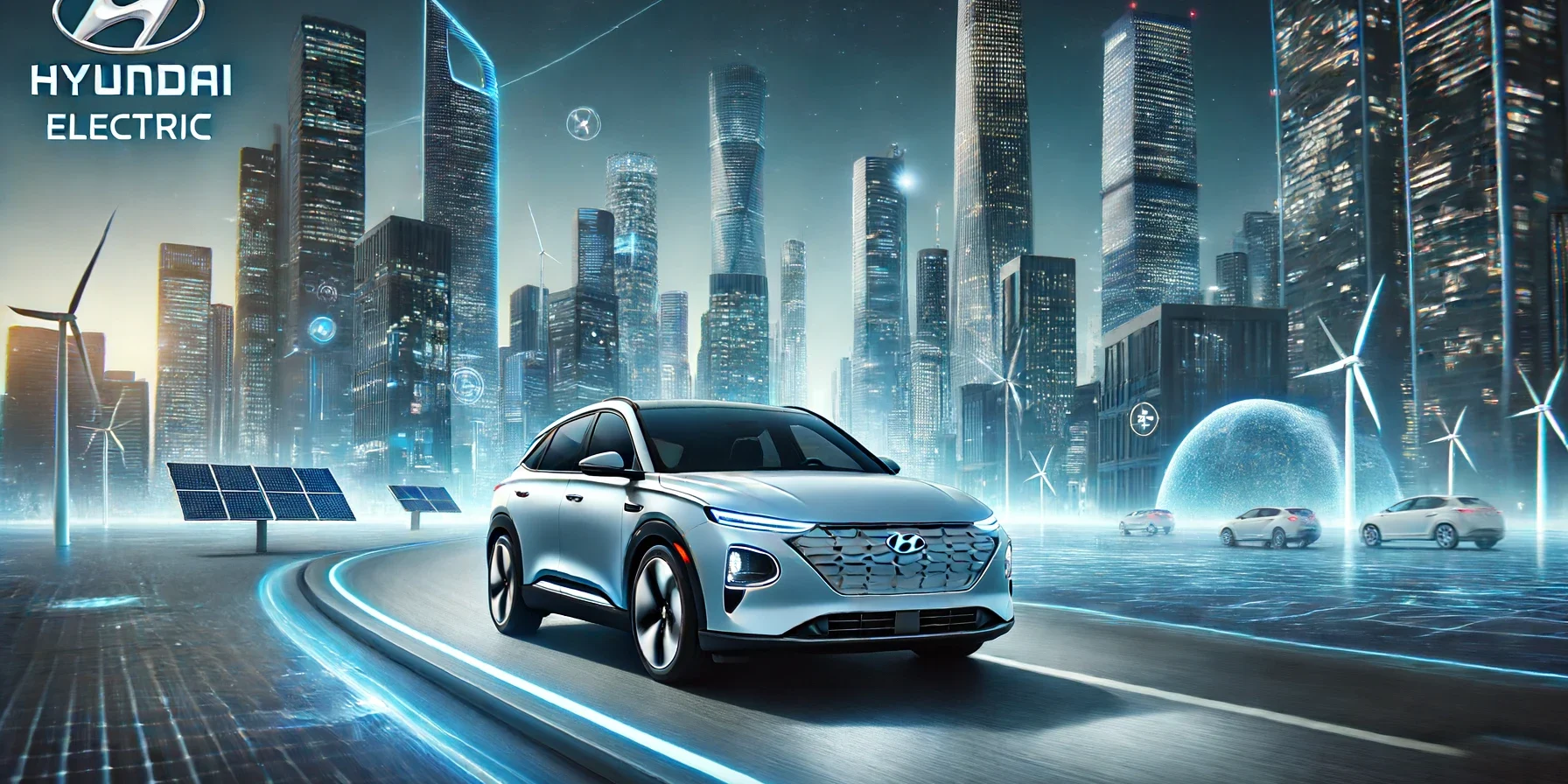Hyundai’s Green Evolution: Innovating for a Sustainable Future
Hyundai Motors, a global leader in the automotive industry, continues to drive forward with a focus on innovation, sustainability, and advanced technology. This article explores Hyundai’s latest initiatives, their expanding lineup of electric vehicles (EVs), and their commitment to creating a sustainable future.
Expansion of Electric and Hybrid Vehicle Lineup
Hyundai has significantly expanded its electric vehicle offerings, highlighted by the introduction of the Hyundai IONIQ 5. The IONIQ 5, an all-electric crossover, showcases Hyundai’s dedication to sustainability and performance. It offers a range of up to 480 km (298 miles) on a single charge, thanks to its 77.4 kWh battery. The IONIQ 5 supports ultra-fast charging, allowing the battery to reach 80% capacity in just 18 minutes.
The IONIQ 5 features a sleek, modern design with a spacious interior and advanced technology. The dual 12.3-inch digital displays provide a panoramic view of the vehicle’s controls and infotainment system, enhancing the driving experience. The IONIQ 5 also comes equipped with a suite of advanced driver-assistance systems (ADAS), including highway driving assist, lane-keeping assist, and smart cruise control.
Introducing the Hyundai Tucson Plug-in Hybrid
Expanding its hybrid offerings, Hyundai offers the Tucson Plug-in Hybrid, a versatile and practical SUV. The Tucson Plug-in Hybrid combines a 1.6-liter turbocharged engine with an electric motor, providing a combined output of 261 horsepower. It offers an electric-only range of up to 53 km (33 miles), making it ideal for urban commuting while reducing emissions.
The Tucson Plug-in Hybrid features a contemporary design with a focus on aerodynamics and efficiency. Inside, it offers a spacious cabin with advanced technology, including a 10.25-inch touchscreen display, Apple CarPlay, and Android Auto. The Tucson Plug-in Hybrid also comes with a range of safety features, such as forward collision-avoidance assist, blind-spot collision warning, and rear cross-traffic collision warning.
Commitment to Sustainability
Hyundai’s commitment to sustainability is reflected in its strategy, which aims to transition the company to sustainable mobility solutions. The plan includes the introduction of 23 new EV models by 2025 and achieving a 30% share of the global EV market by 2030. Hyundai is also focused on reducing its carbon footprint through sustainable manufacturing practices and the use of renewable energy.
One notable initiative is the use of eco-friendly materials in vehicle production. The IONIQ 5, for instance, features recycled plastics and eco-processed leather in its interior. Hyundai’s sustainability efforts extend beyond vehicle production to include initiatives such as recycling programs and reducing waste at its manufacturing plants.
Advanced Technology and Connectivity
Hyundai integrates advanced technology and connectivity features into its vehicles to enhance the driving experience. The latest models are equipped with the Hyundai Bluelink system, which offers a range of digital services, including real-time traffic updates, remote vehicle monitoring, and navigation assistance. The system’s seamless integration with smartphones through Apple CarPlay and Android Auto ensures that drivers stay connected on the go.
The Hyundai Bluelink system also provides over-the-air software updates, ensuring that the vehicle’s technology remains up-to-date. The MyHyundai app allows users to remotely control various vehicle functions, such as locking and unlocking doors, checking battery status, and pre-conditioning the cabin. This app also offers vehicle health reports and maintenance alerts, enhancing the ownership experience.
Commitment to Safety
Safety is a top priority for Hyundai, and the latest models are equipped with a comprehensive suite of advanced driver-assistance systems (ADAS). These systems include adaptive cruise control, lane-keeping assist, automatic emergency braking, and a 360-degree camera system. Hyundai’s commitment to safety is reflected in its high ratings in various international safety assessments.
Global Expansion and Market Strategy
Hyundai is expanding its global presence, particularly in emerging markets where there is a growing demand for reliable and efficient vehicles. The brand’s strategy includes developing new models tailored to the specific needs and preferences of customers in different regions. Hyundai’s manufacturing facilities in South Korea, Europe, and North America are crucial to this strategy, enabling the brand to produce vehicles that meet local demands while maintaining high standards of quality and sustainability.
Future Vision and Innovation
Looking ahead, Hyundai is committed to driving innovation and sustainability in the automotive industry. The company is investing in research and development to advance battery technology, autonomous driving, and digital connectivity. Future models will feature next-generation electric drivetrains, advanced driver-assistance systems, and enhanced connectivity features.
Hyundai’s vision for the future includes the introduction of fully autonomous vehicles within the next decade. This technology will enhance safety, reduce traffic congestion, and provide a more convenient and enjoyable driving experience.
Conclusion
Hyundai Motors is paving the way for a sustainable and technologically advanced future in the automotive industry. With a comprehensive range of electric and hybrid vehicles, a strong focus on sustainability, and cutting-edge technology, Hyundai is well-positioned to meet the challenges of tomorrow’s mobility. The brand’s commitment to innovation, quality, and customer satisfaction continues to drive its success, making Hyundai a preferred choice for discerning drivers worldwide.
For more information on Hyundai’s latest models and initiatives, visit the Hyundai official website.







